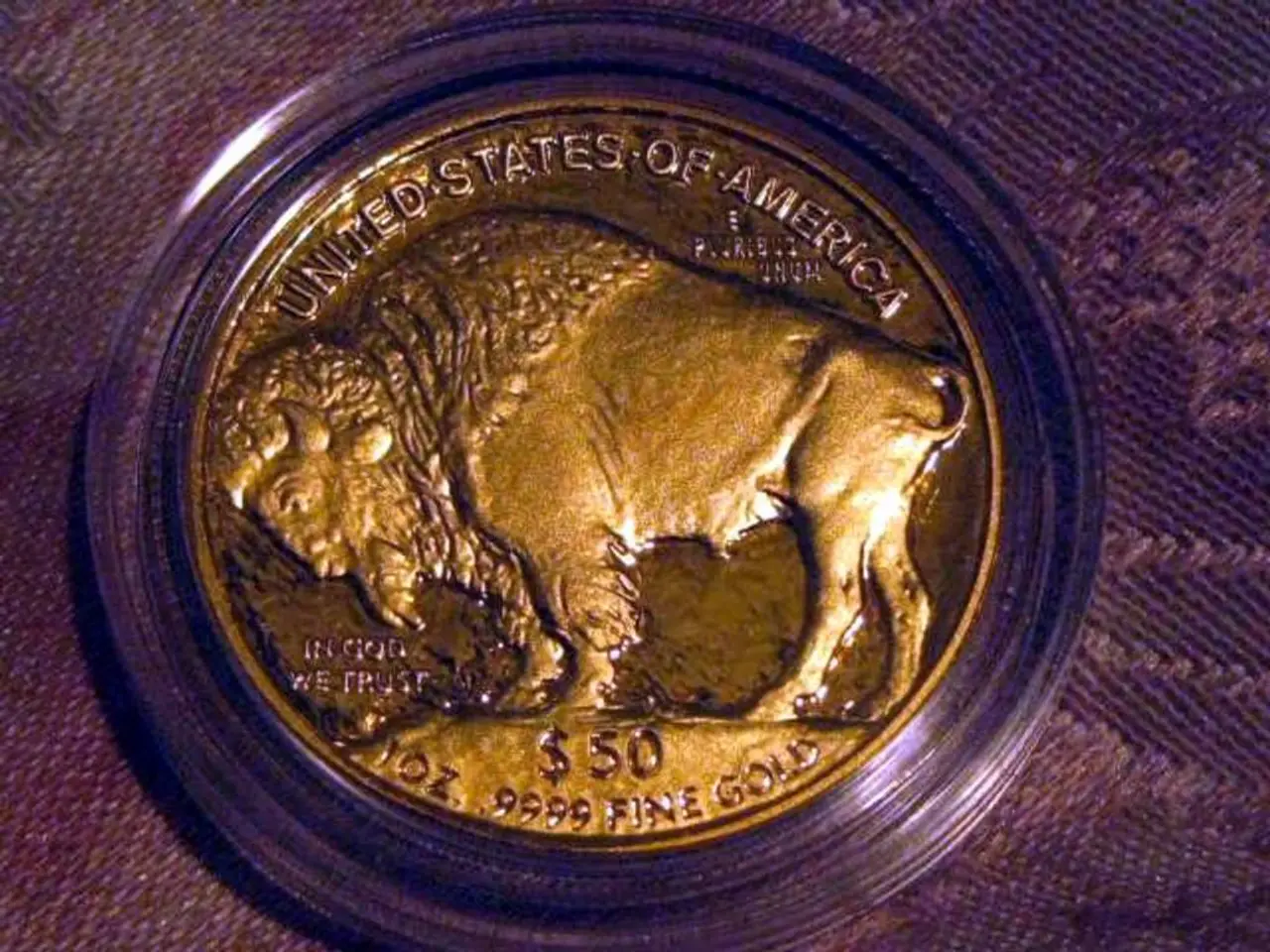El Salvador builds Bitcoin reserves, defying International Monetary Fund cautions up to 6,200 coins.
El Salvador, a small Central American nation, has embarked on an ambitious journey to transform its economy and position itself as a global leader in cryptocurrency adoption. This journey began in 2021 when President Nayib Bukele made Bitcoin legal tender alongside the U.S. dollar, marking a significant shift in the country's financial landscape.
The government's vision is to prepare future generations to become active actors in the new digital economy by focusing on technological education and Bitcoin accumulation. To achieve this, several public schools in El Salvador have incorporated courses on digital money, blockchain, and basic cryptography principles into their curricula.
El Salvador views Bitcoin as a crucial reserve of value for its economy and financial sovereignty. As a result, the government has been acquiring approximately 1 Bitcoin per day, amassing over 6,191.18 bitcoins, valued at about $730 million[1][3][5]. This strategic move aims to diversify financial services and develop a crypto-focused economy.
However, the International Monetary Fund (IMF) has expressed concerns over fiscal stability and economic risks associated with El Salvador's Bitcoin strategy. As part of a $1.4 billion IMF aid agreement, El Salvador agreed to pause Bitcoin purchases and amend its Bitcoin law[2][3]. This move was intended to secure financial stability, but it has exposed tensions between the government's Bitcoin ambition and IMF-mandated economic oversight.
Despite these challenges, El Salvador continues to expand its Bitcoin infrastructure. The National Bitcoin Office has announced plans to launch Bitcoin banks offering deposits, loans, and payments denominated in Bitcoin. These banks, with a $50 million minimum capital requirement and relaxed regulations for crypto services, aim to deepen Bitcoin integration into the financial system and further the country's identity as “Bitcoin Country”[1][3][5].
This trajectory shows El Salvador's attempt to defy traditional economic norms and assert financial sovereignty through cryptocurrency, while grappling with economic stability concerns and market realities[1][2][3][5]. The mixed signals—pausing Bitcoin buys per IMF conditions while promoting Bitcoin banks and increasing national reserves—reflect a complex strategy balancing financial sovereignty with external economic pressure.
El Salvador's Bitcoin strategy positions it as a pioneering nation in cryptocurrency adoption worldwide. The country's determination and innovation in adopting Bitcoin and promoting blockchain technology is challenging traditional limits and opening new possibilities in the face of international obstacles.
However, it's important to note that investing in crypto assets is not fully regulated and may not be suitable for retail investors due to its high volatility[6]. The IMF has argued that an increase in Bitcoin reserves could imply an additional risk to El Salvador's financial stability[4].
Despite these risks, the government remains committed to its vision of making Bitcoin a fundamental pillar of the Salvadoran economy. El Salvador's Bitcoin strategy is aimed at making the nation one of the largest holders of cryptocurrency in the world[7]. To achieve this, the government has established alliances with international institutions to train teachers and students in fintech, including workshops and innovation programs[8].
In conclusion, El Salvador's Bitcoin strategy reflects a bold effort to integrate Bitcoin deeply into the national economy, enhance financial sovereignty, and attract crypto investment. This approach defies warnings from the International Monetary Fund (IMF) and demonstrates the country's commitment to financial and technological innovation.
[1] CoinDesk. (2022, May 28). El Salvador's Bitcoin Reserves Hit 6,191.18 BTC as Government Continues to Buy. Retrieved from https://www.coindesk.com/business/2022/05/28/el-salvadors-bitcoin-reserves-hit-6191-18-btc-as-government-continues-to-buy/
[2] Reuters. (2023, March 1). El Salvador Pauses Bitcoin Buys Under IMF Conditions. Retrieved from https://www.reuters.com/business/finance/el-salvador-pauses-bitcoin-buys-under-imf-conditions-2023-03-01/
[3] The Guardian. (2023, April 1). El Salvador's Bitcoin Law Amended to Secure Financial Stability. Retrieved from https://www.theguardian.com/business/2023/apr/01/el-salvadors-bitcoin-law-amended-to-secure-financial-stability
[4] IMF. (2023). El Salvador: 2023 Article IV Consultation. Retrieved from https://www.imf.org/en/Publications/CR/Issues/2023/03/17/El-Salvador-2023-Article-IV-Consultation-Press-Release-Staff-Report-and-Statement-by-the-46873
[5] Bitcoin Magazine. (2023, May 28). El Salvador to Launch Bitcoin Banks in 2025. Retrieved from https://bitcoinmagazine.com/business/el-salvador-to-launch-bitcoin-banks-in-2025
[6] Investopedia. (2023). Cryptocurrency Regulation. Retrieved from https://www.investopedia.com/terms/c/cryptocurrency-regulation.asp
[7] Cointelegraph. (2023, May 28). El Salvador Aims to Become Largest Holder of Cryptocurrency in the World. Retrieved from https://cointelegraph.com/news/el-salvador-aims-to-become-largest-holder-of-cryptocurrency-in-the-world
[8] El Salvador Academy. (n.d.). Bitcoin 101 Course. Retrieved from https://academy.elsalvador.gob.sv/courses/bitcoin-101/
Individuals interested in following El Salvador's ambitious lead in embracing cryptocurrency and blockchain technology might consider investing in Bitcoin, given El Salvador's growing Bitcoin reserves of over 6,191.18 bitcoins, valued at approximately $730 million. However, it's crucial to note that investing in Bitcoin, like other crypto assets, carries high volatility and is not fully regulated, making it potentially unsuitable for some retail investors.




